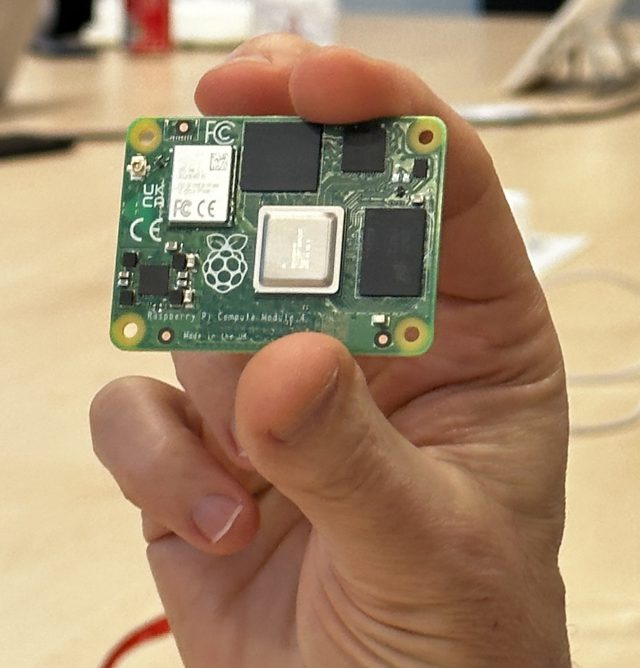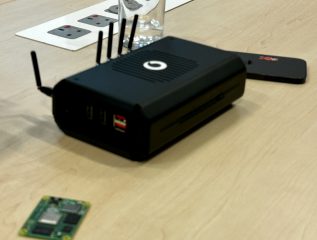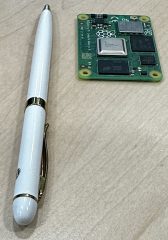Physical Address
304 North Cardinal St.
Dorchester Center, MA 02124


Physical Address
304 North Cardinal St.
Dorchester Center, MA 02124

Vodafone has invented a nano 5G network on a computer the size of a credit card. The prototype 5G network is built on a tiny Raspberry Pi personal computer chipset and will be demoed at Mobile World Congress. The Raspberry Pi is a single-board computer developed in the UK by the Raspberry Pi Foundation and Broadcom.
It will give any home or business its own private and portable 5G network. The device is eventually expected to be marketed in a box the same size and price as a regular wifi router.

The new system combines a Raspberry Pi 4 with a small 5G-compatible embeddable software-defined radio circuit board (SDR), made by Lime Microsystems,which specialises in programmable RF technology and next-generation wireless broadband
This SDR Board used in the prototype transforms any computer into a miniature 5G base station. This can be used as a dedicated private network, an extension of a larger private network or connected to Vodafone’s public network like any other base station.
The board design complies with Open Radio Access Network (RAN) standards and can be used with any computer capable of running Open RAN compatible software.
The Raspberry Pi concept was developed at Vodafone’s new European R&D Centre in Málaga which is developing chips and technology to power new Open RAN innovations built on hardware and software from multiple vendors rather than single-supplier networks.

“This is just a prototype. But it has the potential to bring new cloud, AI and big data technologies to many of the small businesses we support across Europe. The next step is to develop and eventually produce it. Our door is open to interested vendors”, said Vodafone’s director of network architecture Santiago Tenorio,
Vodafone wants to make 5G-based mobile private networks (MPNs) more accessible to around 22 million SME’s in Europe and extend their benefits to every business, lower the entry cost and reduce resources.
The Rasberry Pi computer would be housed in a router-sized 5G box and give households an additional fast broadband link to their wifi as an alternative to the public mobile network with their own private and secure slice of coverage anywhere.
Currently, MPNs are used by large businesses and industry that connects to many devices, machines and vehicles and manufacturing robots.
“We looked at what Raspberry Pi did for computing, in terms of making it more accessible to people of all ages, and we wanted to do the same with 5G.” said Tenorio.